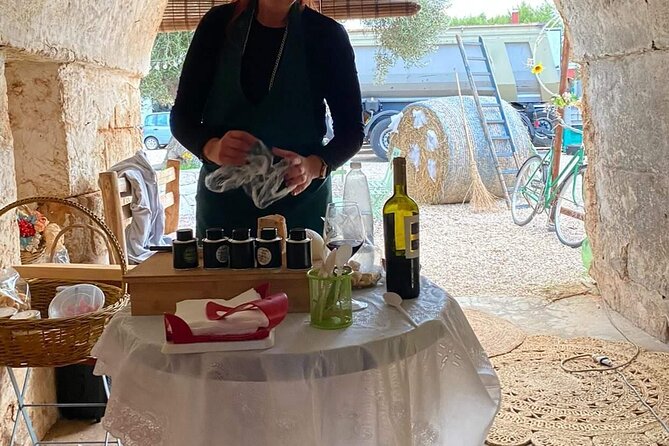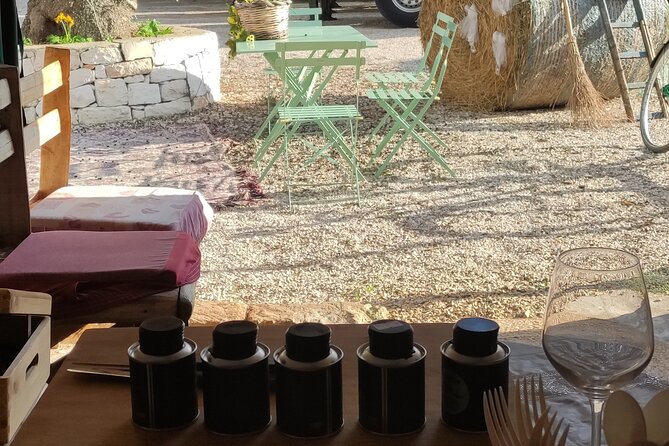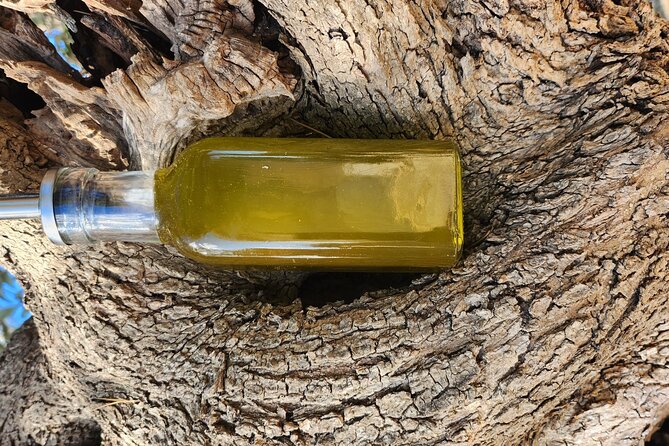Extravirgin olive oil is the highest quality and most prized category of olive oil. Produced from the first cold pressing of olives, it boasts a distinct fruity flavor and vibrant green color. Rich in healthy fats and antioxidants, this versatile ingredient offers numerous health benefits, including supporting heart health and reducing inflammation. Proper storage is crucial to maintain its quality. Whether you’re a seasoned chef or a home cook, understanding the nuances of extravirgin olive oil can elevate your culinary experience. From purchasing and tasting to cooking and storing, there’s much to explore when it comes to this exceptional oil.
Key Points

- Extravirgin olive oil is the highest quality, unrefined olive oil made from the first cold pressing of olives, with a distinct fruity flavor and numerous health benefits.
- Olive oil production has a rich history tracing back to ancient civilizations in the Mediterranean region, with modern extraction methods introduced in the 20th century.
- Extravirgin olive oil is packed with monounsaturated fatty acids and antioxidants, which can lower cholesterol, reduce heart disease risk, and potentially prevent certain cancers.
- When tasting extravirgin olive oil, observe the color, viscosity, aroma, and flavor notes to evaluate its quality and characteristics.
- Extravirgin olive oil is versatile in cooking, best suited for gentle methods like sautéing and finishing dishes, to enhance the overall flavor profile.
What Is Extravirgin Olive Oil?

Extravirgin olive oil is the highest quality and most prized category of olive oil.
It’s made from the first cold pressing of olives, without the use of any chemical treatments or refinements. This results in an oil with a distinctive fruity flavor, low acidity, and a vibrant green color.
Extravirgin olive oil is rich in antioxidants and healthy fats, making it a nutritious choice for cooking and dressings. Its complex taste profile and health benefits have made it a staple in Mediterranean cuisine.
Proper storage is important to maintain the oil’s quality, as exposure to light, heat, and oxygen can degrade its flavor and nutritional value over time.
You can also read our reviews of more tours and experiences in Puglia.
History of Olive Oil Production

The origins of olive oil production can be traced back thousands of years, with evidence of its cultivation and use dating as far as 6000 BC in the Mediterranean region.
Over the centuries, olive oil has played a crucial role in the culinary, cultural, and economic traditions of many Mediterranean civilizations.
Some key milestones in the history of olive oil production include:
-
The ancient Greeks and Romans developed advanced olive oil production techniques, including the use of stone mills and olive presses.
-
The spread of olive cultivation to new regions, such as Spain, Italy, and North Africa, during the Roman Empire’s expansion.
-
The introduction of modern olive oil extraction methods, like the centrifugal process, in the 20th century.
-
The growing recognition of the health benefits and versatility of olive oil in the global market.
Benefits of Extravirgin Olive Oil

Olive oil, particularly the premium extravirgin variety, boasts an impressive array of health benefits that have been extensively documented by scientific research.
It’s rich in monounsaturated fatty acids, which can help lower cholesterol levels and reduce the risk of heart disease. Extravirgin olive oil is also packed with antioxidants like polyphenols, which fight inflammation and may even help prevent certain cancers.
On top of that, studies suggest it may improve insulin sensitivity and blood sugar control, making it a valuable addition to a healthy diet.
With its distinctive flavor and versatility in the kitchen, extravirgin olive oil is a nutritional powerhouse worth incorporating into one’s daily life.
Tasting Extravirgin Olive Oil
Tasting this prized elixir offers a sensory journey that unveils its nuances and complexities. The experience can be enhanced by:
- Observing the oil’s color, viscosity, and any sediment present
- Gently swirling the glass to release the aroma
- Inhaling deeply to detect notes of fruit, herbs, or other distinctive scents
- Sipping a small amount and allowing it to coat the tongue, detecting bitterness or pungency
- Noting the overall flavor profile and how it lingers on the palate
This careful, methodical approach allows one to fully appreciate the unique characteristics that define a high-quality extravirgin olive oil.
Cooking With Extravirgin Olive Oil

Extravirgin olive oil is a versatile ingredient that can elevate countless dishes with its rich, distinctive flavor. Sautéing vegetables, drizzling over salads, or finishing pastas, this premium oil adds a depth of flavor that can’t be replicated.
When cooking with extravirgin olive oil, it’s best to avoid high-heat techniques like deep-frying, as the delicate flavors can be easily overpowered. Instead, opt for gentler methods like simmering, roasting, or using the oil as a final garnish.
The subtle fruitiness and peppery notes of quality extravirgin olive oil can transform even the simplest recipes into extraordinary culinary experiences.
- 4-Hour Tour Visiting All the Caves, Swimming Stops, and Aperitif
- Sunset Excursion
- Visit + Experience at the Historical Museum of Firefighters and the Italian Red Cross
- Charming Exclusive Customized Tours With Your Real Apulian Friend
- Private Basic Course in Apulian Ceramics in a Farmhouse
- Monte Sant Angelo Tour: an Amazing Spiritual Sanctuary of Archangel St. Michael
Purchasing Extravirgin Olive Oil

When purchasing extravirgin olive oil, it’s essential to be an informed consumer.
Look for bottles with a harvest date, as fresher oil has more flavor. Check the acidity level – the lower, the better.
Ensure the oil is certified organic and comes from a single origin. Avoid oils labeled "light" or "pure," as these are refined and lack the benefits of true extravirgin oil.
Finally, buy from a trusted producer or retailer to guarantee authenticity.
- Seek harvest date
- Check acidity level
- Look for certified organic, single-origin
- Avoid "light" or "pure" oils
- Purchase from a trusted source
Storing Extravirgin Olive Oil

Proper storage is key to preserving the flavor and quality of extravirgin olive oil. It should be kept in a cool, dark place away from direct sunlight, heat, and oxygen.
Storing it in a glass or stainless steel container is best, as plastic can impart off-flavors. The container should be airtight to prevent oxidation.
Refrigeration can help extend the oil’s shelf life, but it’s not strictly necessary. Once opened, consume the oil within 2-3 months for optimal freshness.
When stored correctly, extravirgin olive oil can retain its unique taste and health benefits for up to 18 months from the production date.
Frequently Asked Questions

What Is the Process for Extracting Extravirgin Olive Oil?
Extravirgin olive oil is extracted through cold-pressing olives, where the fruit’s natural oils are mechanically extracted without chemical treatments. This preserves the oil’s distinct flavor, aroma, and nutritional properties.
How Can I Determine the Quality of Extravirgin Olive Oil?
To determine the quality of extra virgin olive oil, one should consider factors like aroma, flavor, and acidity level. A professional tasting, color, and appearance can also provide valuable insights into the oil’s quality.
What Is the Difference Between Extravirgin and Regular Olive Oil?
Extra virgin olive oil is the highest quality, unrefined olive oil, with a distinct flavor and aroma. Regular olive oil is a lower grade, often blended with refined oils, resulting in a milder taste.
Can Extravirgin Olive Oil Be Used for Frying?
Extravirgin olive oil can be used for frying, but it’s not recommended. Its low smoke point makes it more suitable for low-to-medium heat cooking, dressings, and drizzling. For higher heat applications, a refined olive oil or other high heat oil is a better choice.
How Long Does Extravirgin Olive Oil Typically Last Once Opened?
Typically, opened extra virgin olive oil lasts 3-6 months when stored properly. Its shelf life depends on factors like storage conditions, exposure to light, and quality of the oil. Proper storage helps preserve the oil’s flavor and health benefits.
Recap
Extravirgin olive oil is the pinnacle of olive oil quality. Its rich, fruity flavor and vibrant color make it an exceptional ingredient for both cooking and health. By understanding the benefits, proper tasting and storage techniques, you can ensure you get the most out of this versatile oil. Whether drizzled over dishes or incorporated into recipes, extravirgin olive oil is a culinary treasure worth exploring.
More Tour Reviews in Puglia
- Private Tour in Matera and Alberobello Unesco Wonders
- Sea Kayaking Excursion: Santa Cesarea Terme and the Sulfur Caves
- Guided Tour on the Path of the Cipolliane
- Dining Experience at a Locals Home in Maglie With Show Cooking
- Cooking Class in a Trullo Near Polignano
- Siponto Tourist Guide: 3D Experience Between Middle Age and 21ST Century
Not for you? Here's more things to do in Puglia we have recnetly reviewed
- 2 Best Guided Tours In Puglia
- Horse Riding in the Gargano National Park
- Private Market Tour and Cooking Class With Lunch or Dinner in Manfredonia
- 2-Hour Private Tour of Bitonto: a Jewel You Cannot Miss
- Private Transfer From Castro Marina to Brindisi (Bds) Airport
- Private Transfer From Acaya to Brindisi (Bds) Airport
- Tremiti Islands From Peschici: Ferry and Boat Tour of the Islands
- Private Transfer From Marina Di Ginosa to Brindisi (Bds) Airport
- Private Transfer From Acquaviva Delle Fonti to Bari (Bri) Airport
- Private Transfer From Avetrana to Bari (Bri) Airport
- Private Transfer From San Cataldo to Brindisi (Bds) Airport
- Dining Experience at a Locals Home in Mola Di Bari With Show Cooking
